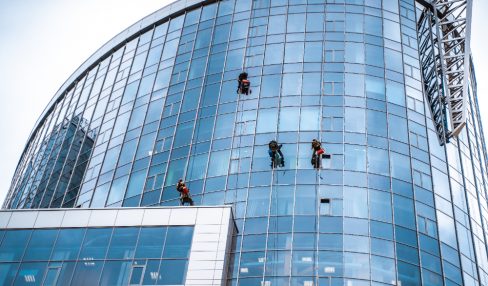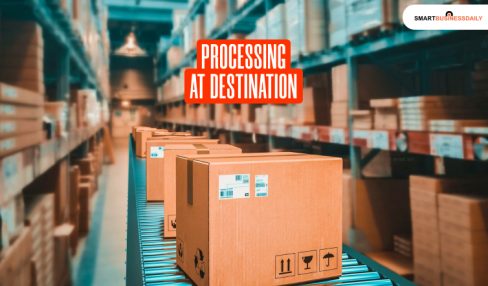Office Desks and Their Impact on Employee Focus and Performance
5 Mins Read
Published on: 09 October 2024
Last Updated on: 14 October 2024

toc impalement
In modern workplaces, where productivity is highly valued, one key factor often overlooked is the impact of office furniture, particularly office desks, on employee focus and performance.
In fact, functionality and design languages are essential for office furniture. A comfortable and well-designed office desk fosters efficiency and productivity. Not only that but several industry experts and studies have shown that comfort is directly linked to productivity.
As a result, choosing and desk placement in the office are directly related to productivity. But how? Well, you need to follow along. However, the primary reason is that comfort helps people concentrate better.
Hence, people need to choose a suitable desk carefully. It can help people focus better, take more work up, and work in a more organic manner. Hence, being very careful is the key. Thankfully, this article will help you with that.
The Connection Between Workspace Design and Employee Performance
A well-designed workspace plays a significant role in how employees feel and perform. The layout and structure of the desk, alongside its integration into the overall office setup, can either enhance or diminish productivity.
For instance, an open-plan office may require desks that allow for collaboration, whereas a more private setup could benefit from desks with partitions to reduce distractions.
Desks that support an employee’s specific needs—such as sufficient surface area for equipment, storage, and personal items—also contribute to better focus.
Research has shown that employees who feel comfortable and organized at their desks are more likely to remain engaged in their work. Disorganization and discomfort, on the other hand, can quickly lead to mental fatigue and decreased motivation.
Thus, the design of office desks is not just about aesthetics but functionality that aligns with work tasks, helping employees stay focused and on track.
Ergonomics: The Foundation of Office Desk Design
Ergonomics has become one of the foremost concerns for modern-day furniture designers. It decides how well a piece of furniture adapts to your body. Therefore, ergonomics become essential for posture and spine health.
Not only that, but good ergonomics also help people with their posture and back pain. It can also reduce the chances of people experiencing Carpal Tunnel Syndrome. Therefore, good furniture has mass-scale benefits. Benefits that outweigh the cost.
Ergonomics also helps people with their eyesight by keeping the angle right. Therefore, all of these things add to the overall benefit chart of good chairs and desks, and thus, proper desk placement in the office is crucial.
This is why companies should only go for chairs that are ergonomically advanced and well-made.
Reducing Clutter to Improve Focus
Cluttered desks can create visual and mental chaos. A messy workspace has been linked to increased levels of stress and anxiety, making it harder for employees to concentrate. By contrast, a clean, organized desk promotes mental clarity and allows employees to focus on the task at hand.
Office desks with built-in storage solutions, such as drawers or shelves, help reduce clutter. By providing ample space to store documents, supplies, and personal items, these desks ensure that employees can keep their workspace organized and distraction-free.
Additionally, desks that incorporate cable management systems can prevent the tangle of wires from electronic devices, further enhancing a neat and tidy workspace.
Encouraging employees to adopt a habit of decluttering at the end of the day can also help reset the mind for the following day. An organized desk creates a fresh, focused start every morning.
The Role of Desk Placement in Employee Performance
Where the desk is placed within an office can significantly affect how well employees perform. Natural lighting has been proven to improve mood, alertness, and focus, so placing desks near windows can be beneficial.
However, excessive glare from windows can lead to eye strain and discomfort, so balancing light exposure with proper blinds or screen filters is essential.
Desks placed in high-traffic areas can expose employees to noise and distractions, pulling their attention away from their tasks. On the other hand, desks placed in quiet, low-traffic areas help employees concentrate for more extended periods.
In open-plan offices, partitions or strategically placed office furniture can offer a level of privacy while still allowing for collaboration, ensuring a balance between focus and teamwork.
Personalized Workspaces: A Boost for Morale and Focus
Allowing employees to personalize their workspace with pictures, plants, or other personal items can positively impact their morale and focus.
A workspace that reflects an employee’s personality can make them feel more comfortable and engaged, contributing to higher levels of job satisfaction.
Office desks that offer flexibility, such as modular designs or additional surface space, allow employees to arrange their belongings in a way that best suits their working style.
Personalizing the space doesn’t just make employees feel more at ease; it also helps them feel a stronger connection to their environment, which can boost overall performance.
Technology and Modern Desk Solutions
The technological landscape is changing rapidly. As a result, it is understandable why companies are coming up with products that emulate this technological drive forward. In other words, companies are actually thinking of mass-scale integration of technology into their respective products.
As a result, you will find office desks and chairs with fancy features like charging ports and heating pads. This allows employees to stay connected and technologically adept at all times. In fact, this solves a significant problem for desk placement in the office.
Therefore, this convenience will not only help your office space feel connected but will also help you be more efficient. In fact, this can become crucial in the long run and even help your technologically reliant company to keep the operations flowing.
Therefore, integrating technology with office furniture has its own benefits, like enhanced comfort and more streamlined business operations.
Collaborative Spaces vs. Individual Workstations
In today’s dynamic work environment, the balance between collaborative spaces and individual workstations is essential.
Office desks designed for teamwork, such as larger shared tables, promote communication and idea sharing. However, individual workstations are crucial for tasks that require deep focus and minimal distractions.
Flexible desks that can be reconfigured based on the task at hand are ideal in modern workplaces. A modular office furniture system, for instance, allows teams to shift between collaboration and focused work quickly. This adaptability ensures that the workspace can meet diverse needs, contributing to improved employee performance.
The Future of Office Desk Design
In summation, this is all you need to know about office spaces and the importance of desk placement in the office. However, the future holds something completely different.
Industry experts believe that the trend will move towards more ergonomic and flexible design languages.
In other words, more and more people will eventually gravitate towards more flexible designs. Designs that adapt to the user’s needs and wants. So comfort becomes the paragon of office furniture’s gold standard.
In fact, companies should write this off as something other than something unimportant. In fact, more and more people should be concerned about formulating ergonomic designs that adapt to their employee’s needs. This will increase general comfort and enhance overall productivity.
Therefore, make the right choice and bring the proper office furniture setup to your office. Thank you, and keep following us for more such content.
Read More:


















Comments Are Closed For This Article